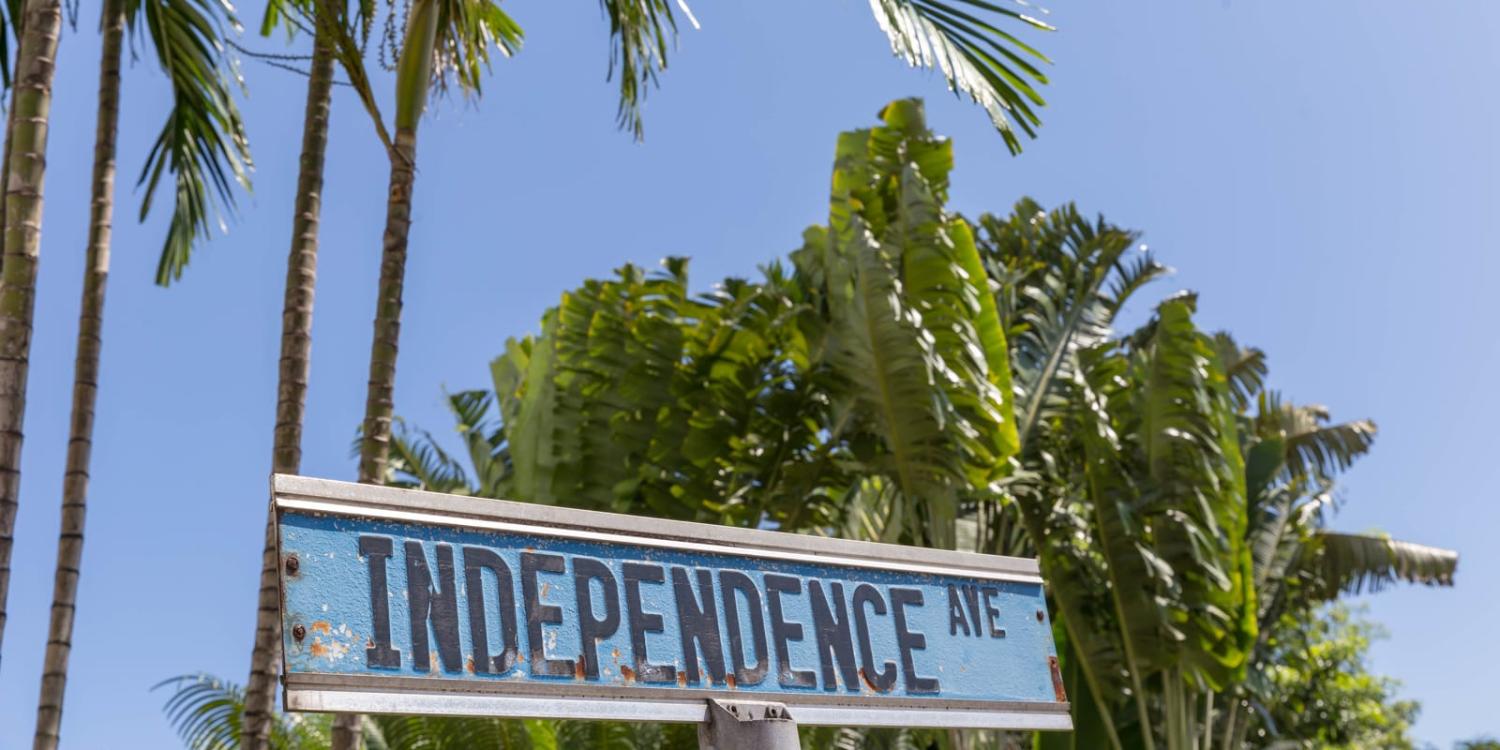The United States has announced it is reopening its embassy in Seychelles. The mission, opened at independence in 1976, was closed as a cost cutting measure in 1996 coincident with the US Air Force closing its obsolete satellite tracking station in the country. Washington’s rekindled interest in Seychelles comes amid a flurry of reopening or establishing embassies in small island states. It belatedly sees a need to respond to China’s assertive diplomatic and aid expansion in regions hitherto thought best attended with benign neglect. Tonga, Solomon Islands, Kiribati, Maldives and Vanuatu now have, or soon will have, the benefit of a residential US diplomatic presence.
Seychelles’ small capital of Victoria has up to now had an imposing Chinese embassy and Indian high commission closely and conspicuously overlooking it on surrounding mountains. Several peninsular Arab establishments adorn even higher nearby crags. The former colonial power, the United Kingdom, occupies several cramped offices above a minor bank in the town itself.
China has a head start. Its aid program has been substantial, involving as elsewhere conspicuous construction of public buildings. Some observers have sourly and ineffectively noted that construction has involved imported Chinese workers rather than taking up Seychellois unemployed. But the Chinese commitment is firmly part of a regional presence and strategy: China has a resident diplomatic mission in every Indian Ocean island state. Senior Chinese officials visit regularly. The Foreign Minister visited Seychelles in 2021 and the Deputy Chief of the PLA not long before.
President Wavel Ramkalawan and his government appear to have received the US move with considerable relief. His government and that of his now opposition predecessor long sought to maintain a neutralist foreign policy in common with the African Union and nearby India. This traditional position was shaken by Seychelles’ need to rely on substantial Western help – US, EU and Australian — to combat incursions into its waters by Somali pirates and to counter the maritime Gulf-to-Africa drug trade in which Australian warships have contributed notable successes. A resident US mission not only puts some structure around a persisting security relationship but helps balance ongoing assertive blandishments from Beijing. Ramkalawan’s predecessor had to publicly correct the record issued by Beijing after his visit to China as to what Seychelles had committed to under Belt and Road infrastructure agreements. That said, China’s efforts have helped create a positive image for it in the island nation.
China is not the only uncomfortable suitor Seychelles is keen to balance with a stronger Western presence. Ramkalawan had earlier scotched tentative arrangements made with New Delhi for a substantial Indian naval base on one of Seychelles’ islands near the northern entrance to the Mozambique channel.
Meanwhile, Canberra has long avoided any effort to lift Western diplomatic presence in its own Indian Ocean approaches. It has even recently announced the closure of the Austrade office in Johannesburg. The Royal Australian Navy has agitated to reduce its presence in the western Indian Ocean seeing more pressing priorities elsewhere. Instead, the Department of Foreign Affairs and Trade runs its business in Seychelles – as well as in Mauritius, Madagascar (with its substantial Australian mining investment), Comoros and the French territories centred on Réunion – from its small high commission in Port Louis, Mauritius, staffed on a good day with two Australian officers.
For all its Third World neutralism, Seychelles is a robust democracy with profound, lucrative and modern economic links to the West, especially Europe. It strongly supports a rules-based global order, reflected in its stance on issues such as Ukraine, trade, global finance and terrorism. Its social links to Australia are substantial; Australia hosts the largest Seychellois diaspora, perhaps equivalent to ten per cent of the Seychelles population.
Washington’s move back into Seychelles benefits Australia and contributes to Western strategic depth in the Indian Ocean. But Seychelles authorities fully understand the US motivation and can be expected to look for ballast in the newly refloated relationship.
(Image credit Flickr user Marco Verch, used under Creative Commons 2.0 license)

